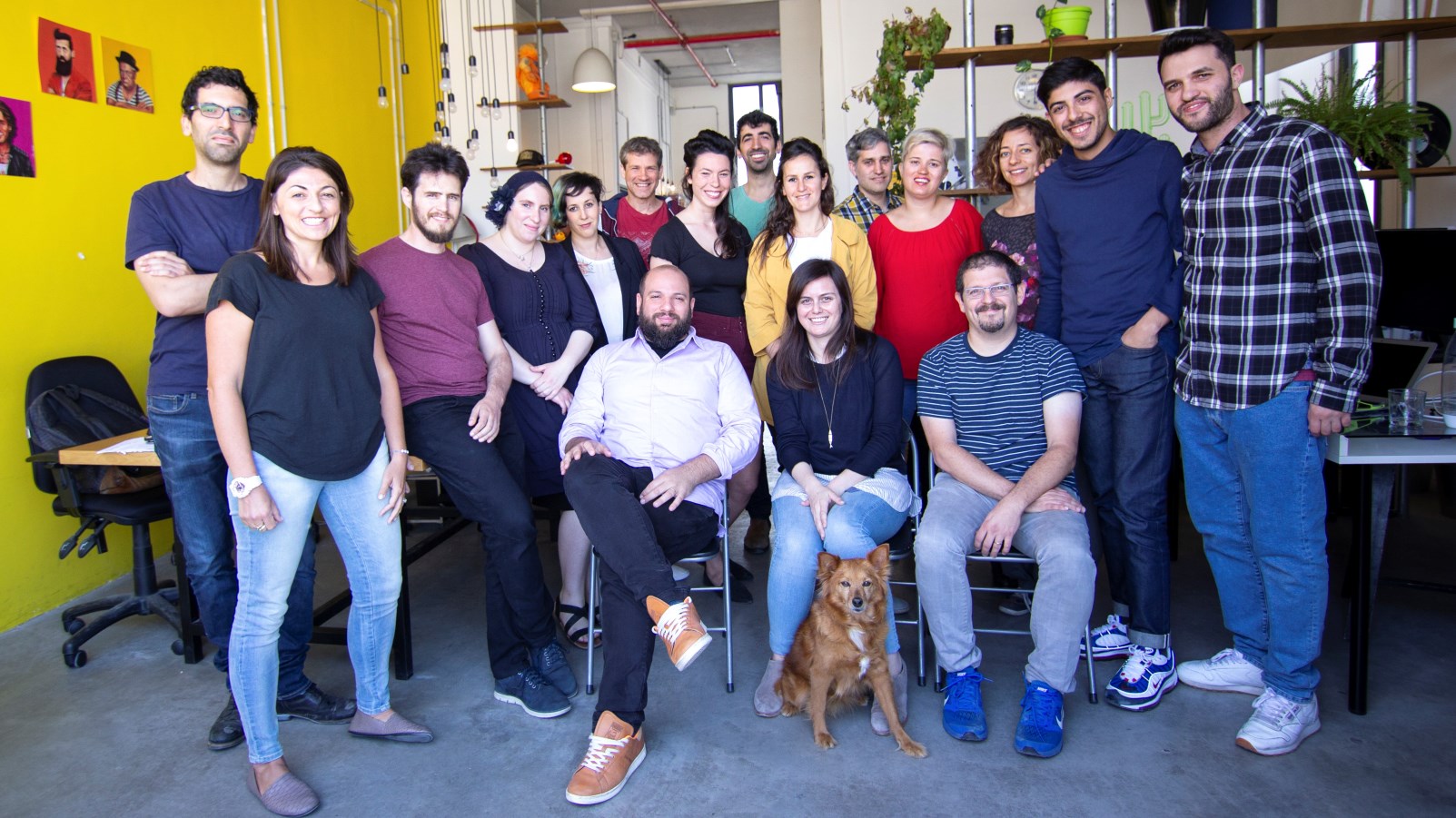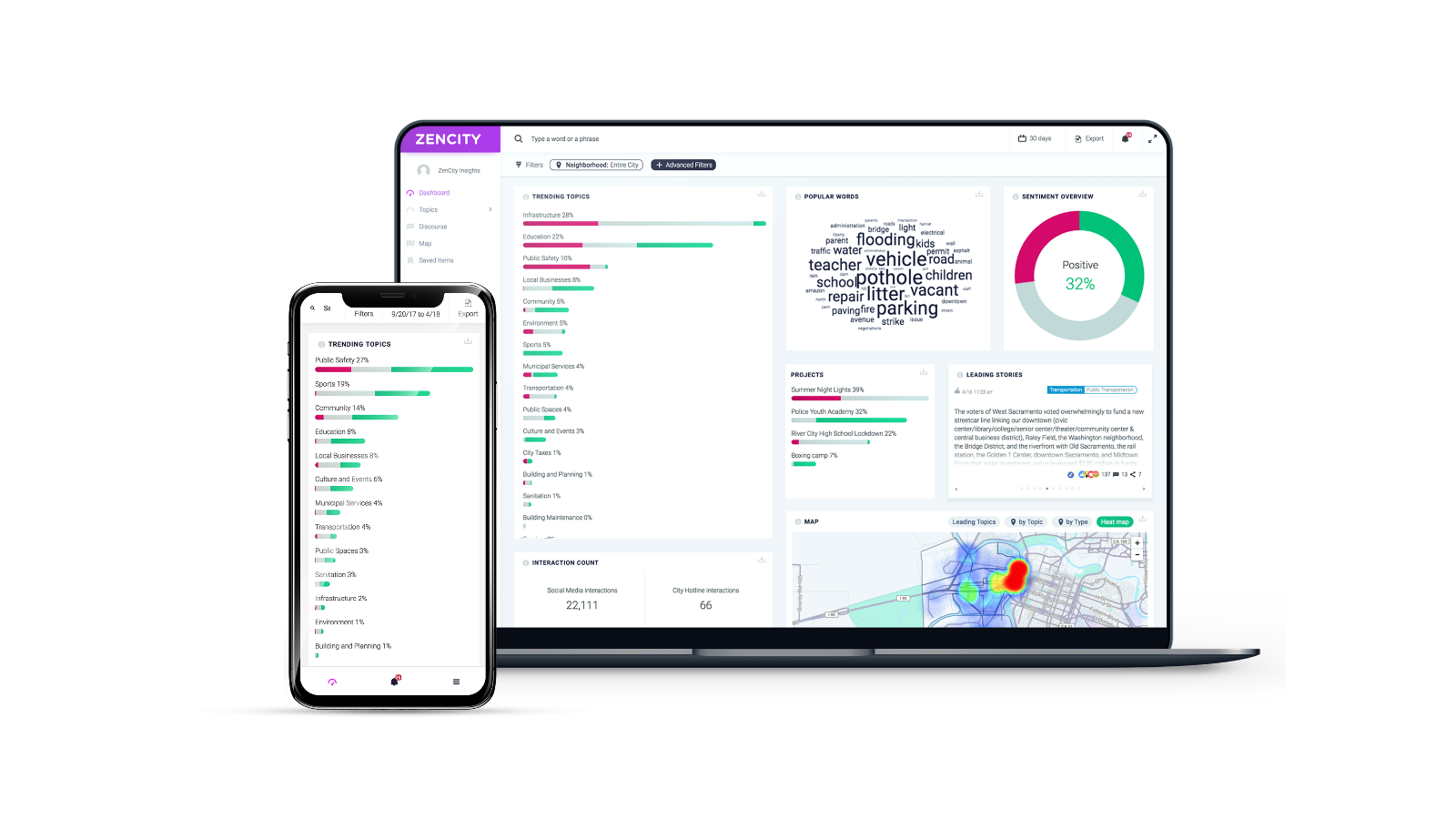The rumor spread quickly on social media. There had been a murder in town. Except that it wasn’t. The apparent murder was actually a traffic accident. It was still tragic, but the city manager knew he needed to get out in front of the rumor before it snowballed and created panic in his small community.
Fortunately, the city manager had a head start from ZenCity. The Tel Aviv-based startup monitors what it calls “citizen sentiment” as a way of helping municipalities understand the needs of their residents.
ZenCity does this by aggregating communications coming both from official channels (emails to the city, the municipality’s call center logs) and unofficial channels (what people are posting on Facebook, Twitter and other social-media platforms).
In the example of the mistaken manslaughter, the city manager had received an alert on his smartphone after ZenCity picked up an unusual spike on Twitter for people using the word “murder” for a certain neighborhood in town. That gave the city manager time to react and stop the spread of misinformation.
Not every alert is so dramatic. A more common concern is potholes and cracked sidewalks. Residents may phone in a complaint, but just as often, they’ll kvetch online. ZenCity makes sure those messages aren’t missed.

ZenCity uses sophisticated artificial intelligence and machine learning to scour the dozens of sources it tracks. Last April, the company landed $1 million in funding from Microsoft’s venture capital arm. ZenCity was one of three winners in Microsoft’s Innovate.AI competition, beating 200 other startups and taking the grand prize for the Israel region.
That $1 million was a big deal for the young company, which launched in 2015; before that, ZenCity had raised only $1.7 million (from Canaan Partners Israel with participation from i3 Equity Partners).
“This wasn’t a $100,000 competition where everyone applies,” ZenCity CEO Eyal Feder-Levy says proudly. “It shows real commitment [and] emphasizes how serious this issue was for Microsoft.”
Picking up on negative sentiment
ZenCity doesn’t just gather data and dump it in one place. The company’s software classifies the collected information into distinct categories that can be received in real time, as daily digests or for long-term planning via the ZenCity dashboard.
ZenCity can identify all kinds of trends and anomalies – for example, when people are suddenly talking more about a certain subject – and perhaps most important, it understands “sentiment.”

Feder-Levy gave ISRAEL21c a sentiment example from a city that was trying to decide where to allocate funds. The city chose not to renovate a particular park. A backlash quickly formed. It turned out that the local little league practiced at this park and now had nowhere to go.
“The renovation decision essentially was defunding little league,” Feder-Levy said. “The sentiment was very negative and the volume of the discussion was higher than almost any other topic in the city.”
The city changed its mind and youth baseball was saved.
ZenCity also helped a city uncover what really irked residents about their sidewalks. The city engineer had assumed people complained most about cracked pavements. But ZenCity’s software was able to determine that it was in fact cars and trash bins blocking the sidewalk that were the bigger problem.
The city doubled the number of parking inspectors and moved the rubbish off the sidewalk. “The sentiment switched from 80 percent negative to 52 percent positive, with people saying ‘Finally, the city is listening to us,’” Feder-Levy says.
ZenCity is careful not to violate users’ privacy. Call-center data does not include names and ZenCity only monitors public social-media sites. That includes Twitter as well as public Facebook groups.
The service is easy to set up, with everything run via the cloud. “We’ve never physically visited most of our clients,” Feder-Levy says.
Pricing is based on the number of residents in the city. Small cities start at around $15,000 a year. A large city could pay hundreds of thousands of dollars.
Making our cities smarter is a hot topic these days. Half of the world’s population now lives in urban areas and the number is rising. Canaan Partners Israel General Partner Ehud Levy commented at the time of ZenCity’s first round of financing that the market for “smart city” solutions will exceed $1 trillion by 2020.
“We want to quantify the human side in the same way that cities measure traffic and waste management,” Feder-Levy says. “Our goal is to turn unstructured data into structured, actionable insights.”
In the smart city space, ZenCity has no head-to-head competition, Feder-Levy asserts. But plenty of social-media monitoring companies check how many times a certain brand is mentioned and whether it’s in a positive or negative context.
“We see those tools being used by some cities, as well as tools for online civic engagement,” such as the ability to run an instant online poll, Feder-Levy explains.
ZenCity’s service is growing in popularity – 25 cities are now clients, split equally between the United States and Israel. Among the locations getting Zen: Tel Aviv, San Francisco, Fort Lauderdale, Arlington and Haifa.
In 2017, ZenCity won a competition to offer its service in Paris. The company went up against 100 other startups and ran a pilot that lasted for several months.
While most cities have similar issues – public safety, transportation, weather, public events and afterschool activities top the list – sometimes there are topics unique to a particular location.
Florida, for example, doesn’t see many requests for snow removal. But once, Feder-Levy says, “they had a big iguana problem. That’s not something you’ll see everywhere.”
For more information, click here

















